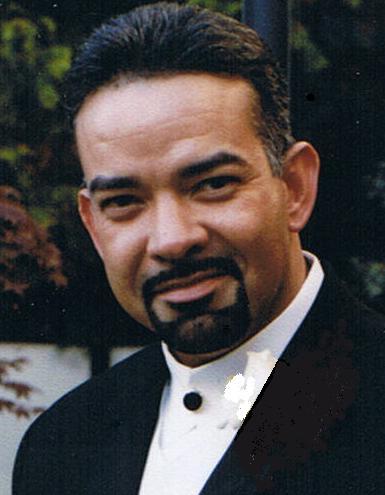'Exotic' mortgages tempt more buyers
Planet Realtor
BOSTON -- March 3, 2006 -- The cheap mortgages that fueled America's real-estate boom are beginning to hurt the homeowners they once helped. Higher interest rates and the end of honeymoon periods for too-good-to-be-true teaser rates are causing payment shock for those who said "I do" to exotic loans.
Some homeowners are switching to safer, and slightly costlier, fixed-rate loans.
But others are taking on even more risk by opting for ultra-low payments that actually increase the loan balance. The result: A growing number of Americans have little equity in their homes, making them vulnerable to a housing slump.
"Because you don't accumulate any equity in your house when you take out these interest-only mortgages, if house prices don't go up, or go down, then you have negative equity, and a lot of these people who had speculated are going to lose money," says Jack Guttentag, a professor of finance emeritus at the Wharton School of the University of Pennsylvania, who provides mortgage advice at mtgprofessor.com. "There could be a rise in the foreclosure rate."
Signs of slumping home values became more evident this week in some regions. In Massachusetts, the median price for single-family homes fell 2.4 percent in January from December's prices. In California, values nudged up just 0.5 percent.
Mr. Guttentag and others acknowledge that nontraditional loans help many people afford homes. But mortgage ads, they say, often emphasize only the low, introductory rates. Consumers often get stuck with risky loans, ignorant of the complex factors that could raise their payments down the road.
"A lot of people who've taken on exotic loans don't understand them," says Scott Hanson, a senior financial planner at Hanson McClain, based in Sacramento, Calif. "The mortgage industry has sold these loans as a way to buy more house than you'd otherwise afford. Anyone who goes out today and gets an adjustable rate has got to be loony."
A year ago, however, it didn't seem so loony, particularly in premium real estate markets such as California. With home values skyrocketing, buyers tried to maximize the purchase - and minimize the monthly payment - with lower-cost adjustable-rate mortgages (ARMs). During periods of double-digit price appreciation, like most of last year, that strategy can pay off, either through selling for a quick profit, or by tapping into the home equity as a source of income.
But when values stall, as they now seem to be doing, those prospects disappear. Instead, buyers may face mounting difficulties. Many cheap loans carry flexible-payment options, such as interest only, or even negative amortization, which can increase the homeowner's debt load.
Those flexible-payment options used to be the province of the very wealthy. But during the real-estate boom, brokers marketed them aggressively to regular homebuyers as a way to improve cash flow or finance a second home.
In 2001, 1.5 percent of borrowers nationwide took out a loan with an interest-only option, according to data from LoanPerformance, a research firm in San Francisco. Last year, one-third did.
"The buyer can get much more home for their money," says Ron Porter, a buyer's broker serving California's Silicon Valley area. But "it may burn them in the long run. We make sure our buyers take a good look at their [financial] future."
Indeed, financial experts are sounding the alarm.
"We are really seeing people pushing their finances to the absolute limit," says Erica Sandberg of Consumer Credit Counseling Service of San Francisco. "They're using every dollar of their paycheck."
Some observers blame lenders for predatory practices, seducing consumers with introductory rates that hide the true cost of home loans. At least one lender has been sued for allegedly misleading consumers. And federal regulators are trying to make it harder for people to qualify for exotic loans, warning of the risk they pose to banks and borrowers.
Despite the hand-wringing, some see signs of assurance. Former Federal Reserve Chairman Alan Greenspan, for example, expressed concern in a speech last fall about the popularity of exotic mortgages. But, he added, "the vast majority of homeowners have a sizable equity cushion with which to absorb a potential decline in house prices."
"I don't see a doomsday scenario here," says Alex Clark, with Hill & Co. Real Estate in San Francisco, who edits sfnewsletter.com. "People are not buying homes to stay in them forever."
The increased mobility of younger homebuyers and the frequent turnover in the housing market probably mean exotic mortgages are here to stay, even if they cause financial hardship for some.
"The average life of a loan is only four years," says Teresa O'Dette, owner of O'Dette Mortgage Group in Tahoe City, Calif. "So why go 30-year [fixed-rate]?"
Go fixed, others say, because the difference in interest rates between an ARM and a fixed loan is so low these days. But in expensive markets across California, an option ARM may be the only way to afford a home. One-quarter of all the new mortgages and refinances in California last year had the negative-amortization option.
High home prices and exotic loans, experts say, are mutually reinforcing. Interest-only loans have been so popular in California because home prices had been appreciating so fast, says Kathy Matt, a senior loan officer with Associated Mortgage Group. "It's a completely different approach than our parents [had]."
That generational difference is worrisome to Mr. Hanson, the financial planner. "My biggest concern with these products is that yesterday's generation wanted to be debt free," he says. "Today's generation is very different."


0 Comments:
Post a Comment
<< Home